Nine Top Accounts to Follow For Palestine Content
Nine Top Accounts to Follow For Palestine Content
Hind Khoudary
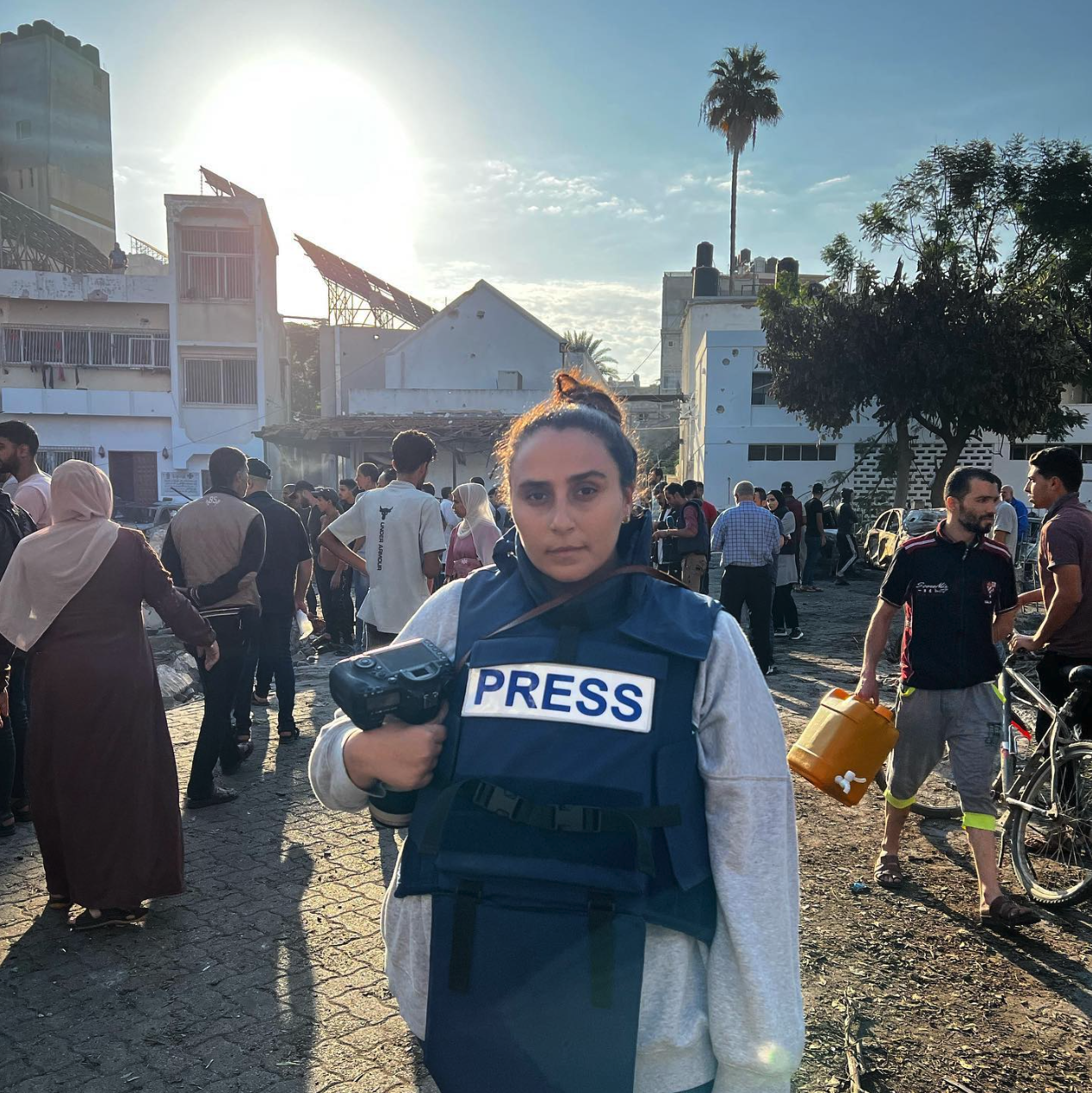
Hind Khoudary is a Palestinian journalist born between 1995 and 1996 in the Gaza Strip. Her work as a journalist is recognized for its focus on political, humanitarian, and social issues, particularly within the context of the Israeli-Palestinian conflict. She has contributed to several notable media outlets, including Middle East Eye, Anadolu Agency, +972 Magazine, and RT. Her reporting often involves on-the-ground coverage of events in Gaza, providing a local perspective on the complex and often tense situation in the region.
Khoudary’s work has garnered significant attention on social media platforms such as Twitter and Instagram. This has been particularly true during periods of heightened conflict, such as during Israeli airstrikes. Her social media presence has been cited by international news organizations, reflecting the global interest in her firsthand accounts and perspectives.
Her career has also involved a stint as a freelance consultant for Amnesty International. During this time, she provided footage of the Great March of Return protests and reported on violations by Hamas against protesters. This work led to a confrontation with Hamas forces, where she was arrested and interrogated.
Khoudary’s personal life includes a period of four years spent in Turkey during the COVID-19 pandemic, after which she returned to Gaza in August 2023. She is married, and her family background includes eight brothers and parents Usama and Marwa el-Khoudary.
Prince Kouta
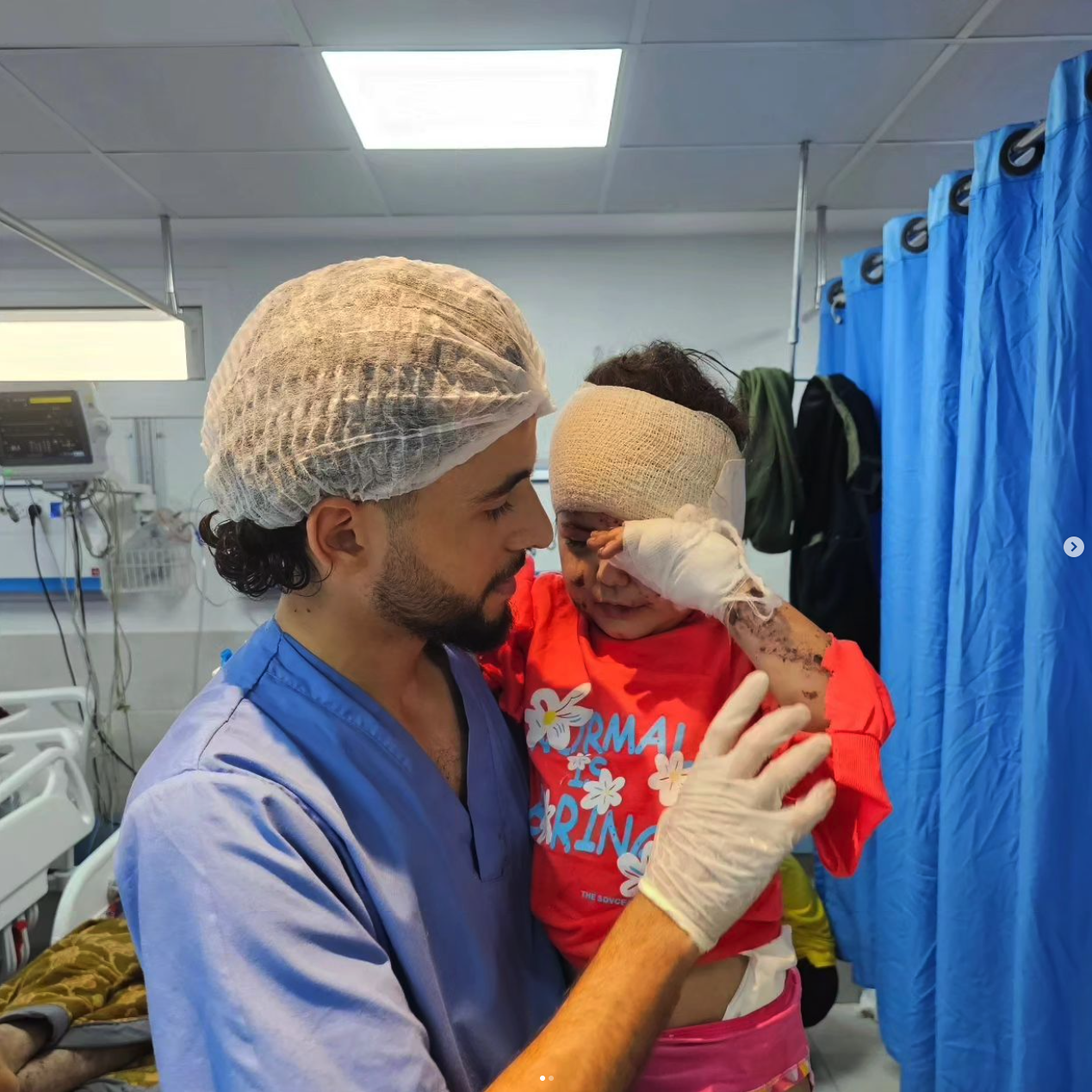
Prince Kouta, whose real name is Ahmed Kouta, is a 23-year-old Palestinian-Canadian. He traveled to Gaza to complete his bachelor’s and master’s degrees in nursing. However, his plans changed dramatically due to the conflict in the region. During the Israeli bombardment following the 7 October, Kouta found himself called to serve in the emergency unit of Al-Shifa hospital in Gaza, the largest medical complex in the area.
His role at the hospital was critical, especially as many of the patients were children. Kouta’s work extended beyond the hospital, as he also provided medical assistance to people in different households, treating various injuries such as burns and fractures. This work was complicated by the closure of Al-Shifa hospital and the lack of other medical facilities in his vicinity.
Kouta’s dedication to helping others in these difficult circumstances was evident. He spent significant time documenting the destruction in Gaza through photos and videos, sharing them online whenever he had a stable internet connection. His online presence, particularly on Instagram where he is known as Prince Kouta, grew substantially, reflecting the impact of his work and the global interest in the situation in Gaza.
Mohammed Majed Aborjela
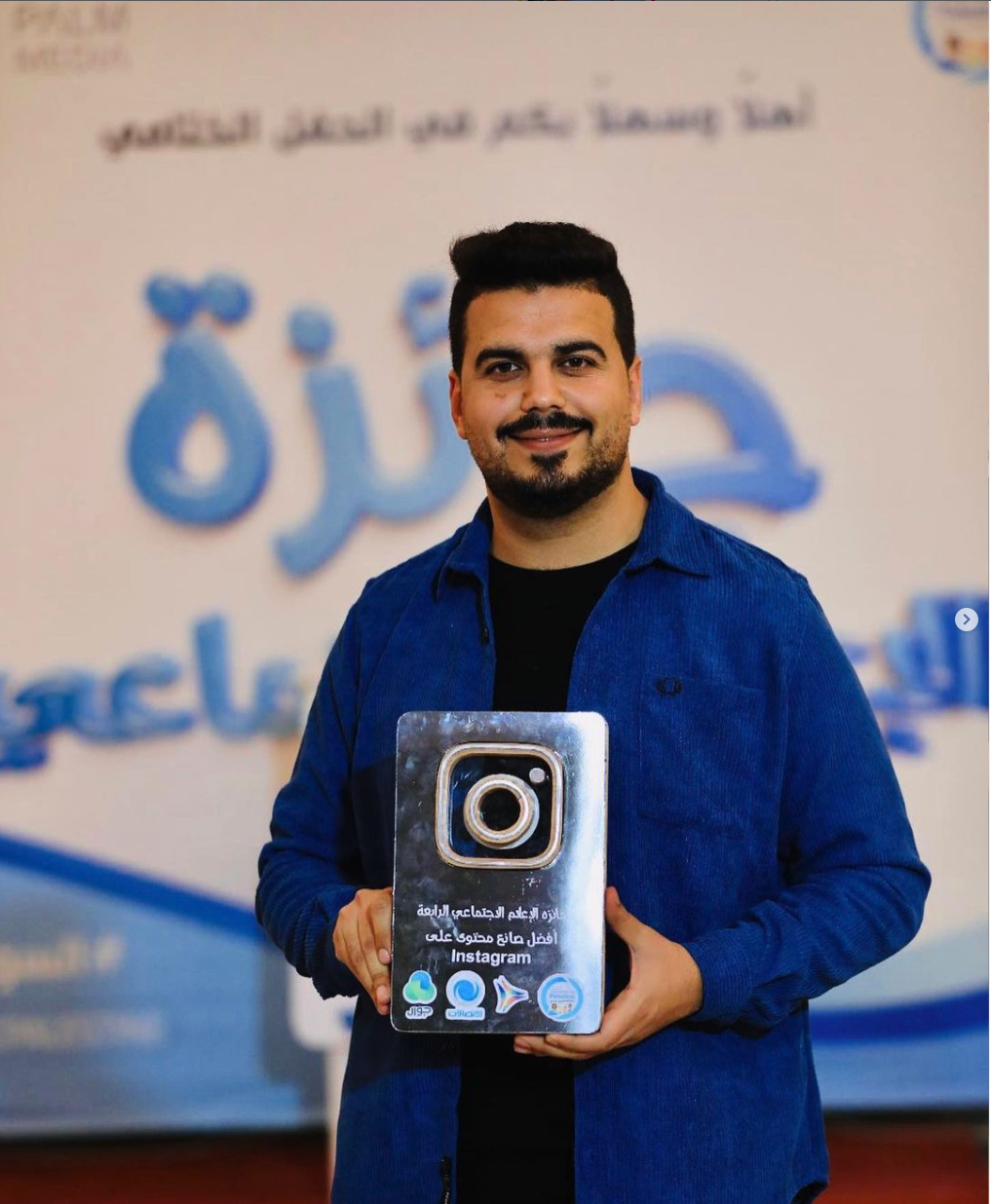
Mohammed Majed Aborjela, aged 27, previously used his Instagram account to share everyday life in the Gaza Strip, highlighting aspects like local cuisine and pigeon racing. With the onset of conflict, his focus shifted to documenting the harsh realities of life under bombardment, including the daily struggles of residents to find essentials like drinking water. He records his experiences and the challenges faced by the community, particularly in Khan Younis, revealing the dire conditions and shortages in Gaza. Aborjela’s contributions offer a glimpse into the impact of the conflict on daily life in the region. His work underscores the resilience and struggles of people in conflict zones, making their stories accessible to a broader audience through social media.
Bisan Owda
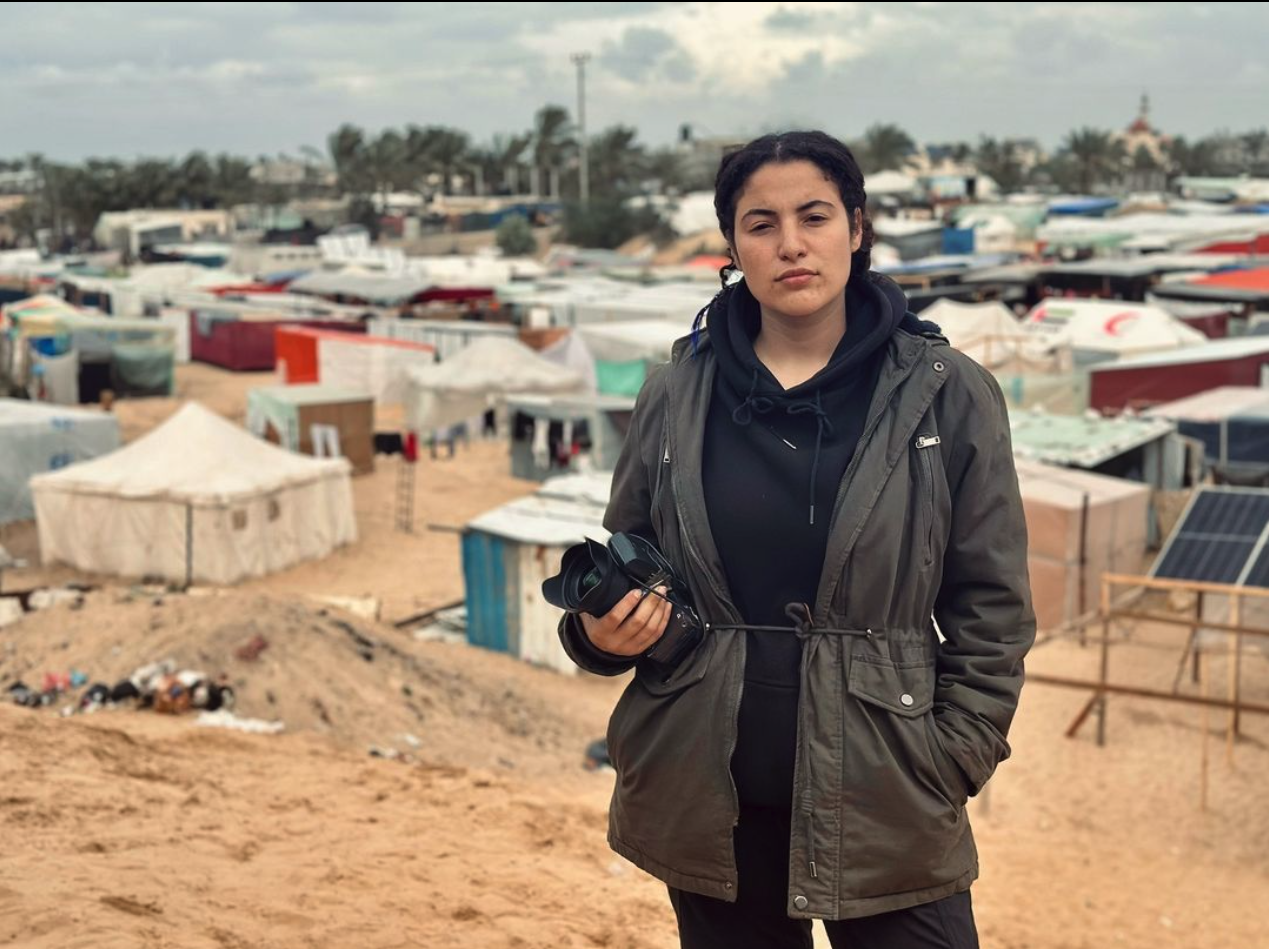
Bisan Owda, born in either 1997 or 1998, is a Palestinian filmmaker and content creator known for her work in documenting the 2023 Israeli genocide in the Gaza Strip. She is deeply involved in community and youth activism and serves as a trainer in fields like advocacy and debates. Her expertise extends to twenty-first-century skills, particularly in the context of Gaza, Palestine.
Owda has been actively volunteering with various local and international teams and institutions, focusing on critical areas like youth and women engagement, climate change, and human rights. She hosts her own show, “Hakawatia,” broadcasted through Roya TV and other platforms, where she discusses social issues.
She is a notable member of UN Women’s Youth Gender Innovation Agora Forum, established in 2020. This forum comprises civil society professionals, young activists, and influencers. It aims to support youth representatives in developing innovative gender equality solutions and engaging with a broader range of stakeholders. The members of this forum contribute their expertise on youth and gender issues, design innovative solutions and campaigns, and work towards mobilizing young people.
Owda’s work in content creation, especially on social media, has been influential in shaping public opinion and advocating for change. She emphasizes the importance of storytelling in content creation, particularly on topics like gender equality, to increase awareness and understanding of the impacts of gender-based discrimination. Her efforts in this field are aimed at combating harmful gender stereotypes and advancing gender equality and women’s rights in Palestine and beyond.
Moreover, Owda has established “Tell Lab,” a youth platform focusing on training young people, especially women, in advocacy, content creation, and community leadership. This platform not only provides content creation tools but also helps publish their content on popular social media platforms to increase reach and impact. Her involvement with local NGOs as a trainer in community leadership, gender, and advocacy further deepens her commitment to these causes.
Motaz Azaiza
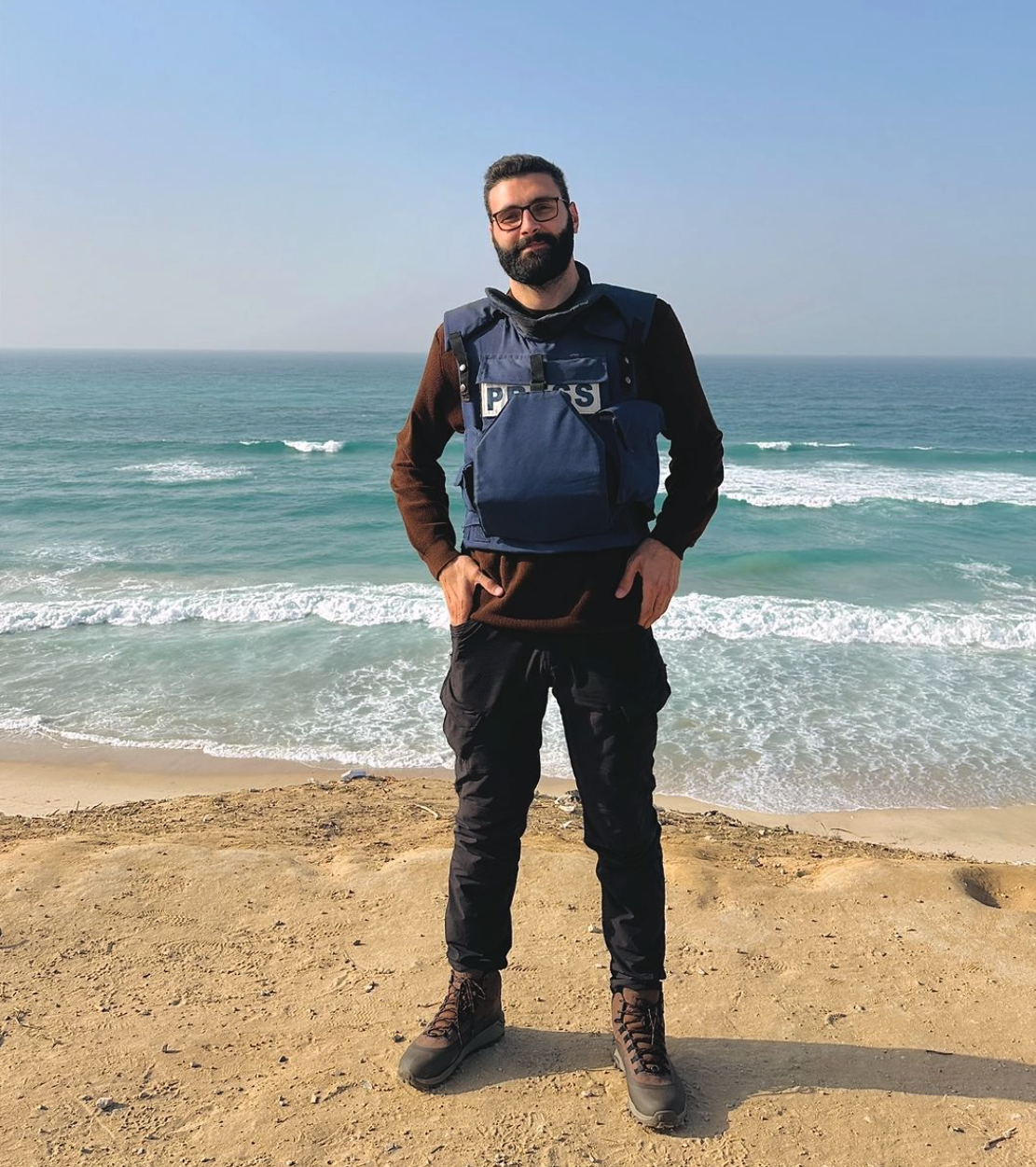
Motaz Azaiza is a young, dedicated photojournalist and filmmaker from Gaza. Born around 1998 or 1999, Azaiza was raised in the Deir al-Balah Refugee Camp in Gaza. He pursued his education at Al-Azhar University in Gaza, graduating in 2021 with a degree in English Language and Literature. His academic journey at Al-Azhar University, which has since faced devastation, was amidst the challenging conditions of the Gaza Strip, characterized by high unemployment rates and constant threats of conflict.
Motaz’s journey into photography and photojournalism started as a personal passion. He initially began by capturing everyday life in Gaza, sharing these moments on his Instagram page. Gradually, his work began to gain recognition, but it was during the conflicts in 2014 and 2021 that his efforts to showcase Gaza’s plight started to gain significant attention. Despite the danger and constant fear, Azaiza was driven by the need to reveal the truth through his camera lens, a commitment that resonated with many across the globe.
His work during the Israeli genocide was particularly impactful. One of his notable photographs, “Seeing Her Through My Camera,” captured a girl stuck under rubble after an airstrike. This image, among others, helped to bring global attention to the harsh realities faced by the people in Gaza. His Instagram account, which had around 25,000 followers on October 7, witnessed a remarkable surge, reaching over 18 million followers–more than US President Joe Biden. This growth underscores the impact of his work in bringing to light the challenges and resilience of Palestinians.
Tragically, Azaiza’s personal life has also been deeply affected by the conflict. He lost 15 family members in an Israeli airstrike on his house, a devastating blow that profoundly impacted him. Despite this immense personal loss and the ongoing conflict, Azaiza remains dedicated to his work, driven by a sense of duty to his community and the need to inform the world about the situation in Gaza.
Azaiza’s work is more than just journalism; it’s a testament to the human spirit’s resilience in the face of adversity. His commitment to capturing and sharing the stories of his people has made him an unsung hero and a beacon of truth in Gaza. His efforts not only highlight the plight of those in the conflict but also serve as an inspiration for oppressed communities worldwide. His story is a powerful reminder of the role of journalists and photographers in bringing global attention to local struggles and injustices.
Saleh Jafarawi
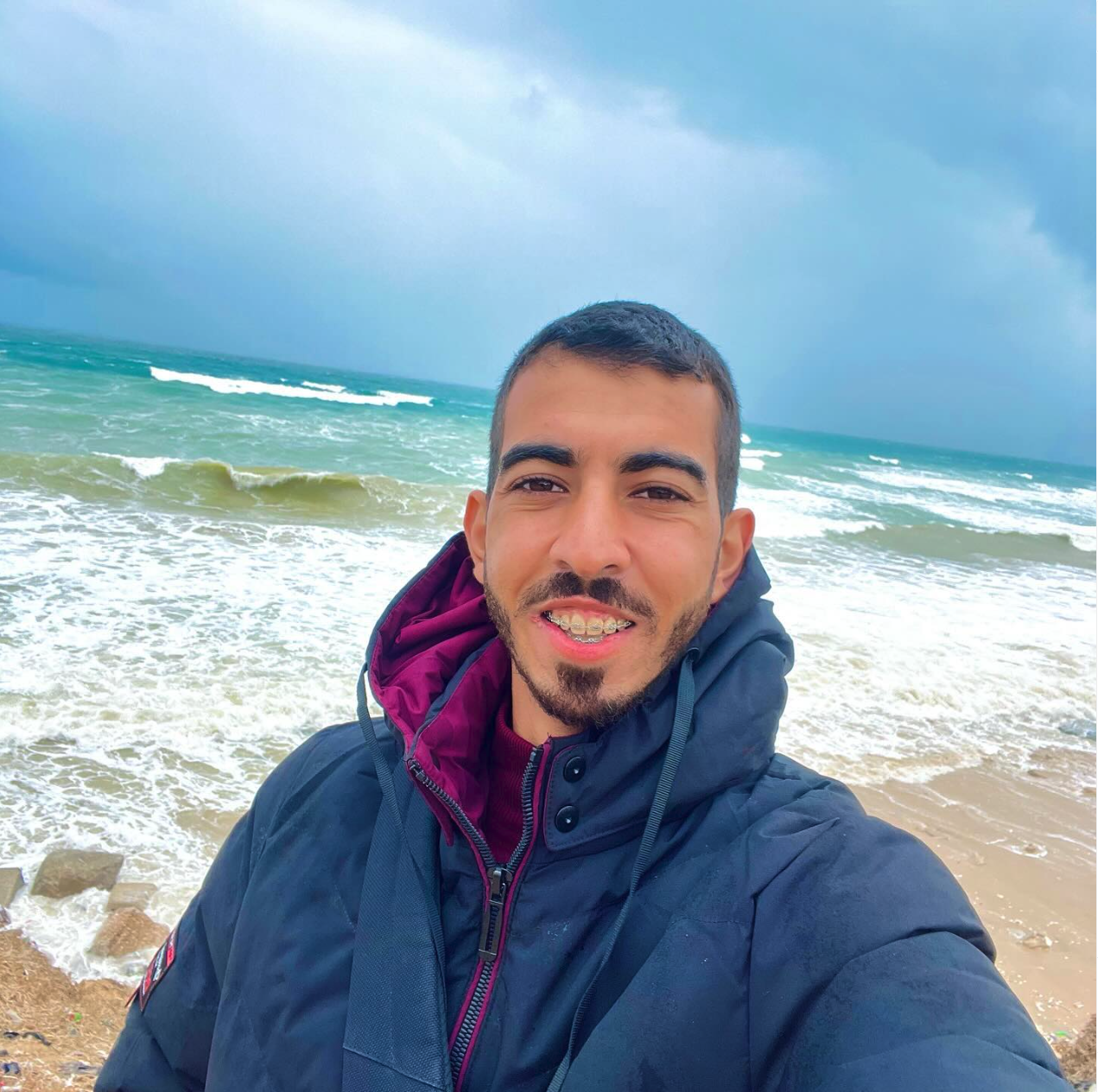
Saleh Aljafarawi is a Palestinian social media personality and journalist from Gaza, known for his online presence and content creation, particularly during times of conflict. He gained attention for his work documenting events in Gaza, especially in relation to the Israeli genocide. Aljafarawi’s Instagram account, which had a significant following, became a platform for him to share videos and images that he claimed depicted the aftermath of Israeli airstrikes in Gaza.
Born and raised in Gaza, Aljafarawi had a substantial following on platforms like TikTok and Instagram. His involvement in the information war surrounding the Israel-Hamas conflict brought him into the limelight, but also under scrutiny. His Instagram account, which had 1.4 million followers, was suspended by Meta for allegedly sharing controversial content. Despite this, he continued to maintain a presence on social media through other accounts.
Yousef Mema
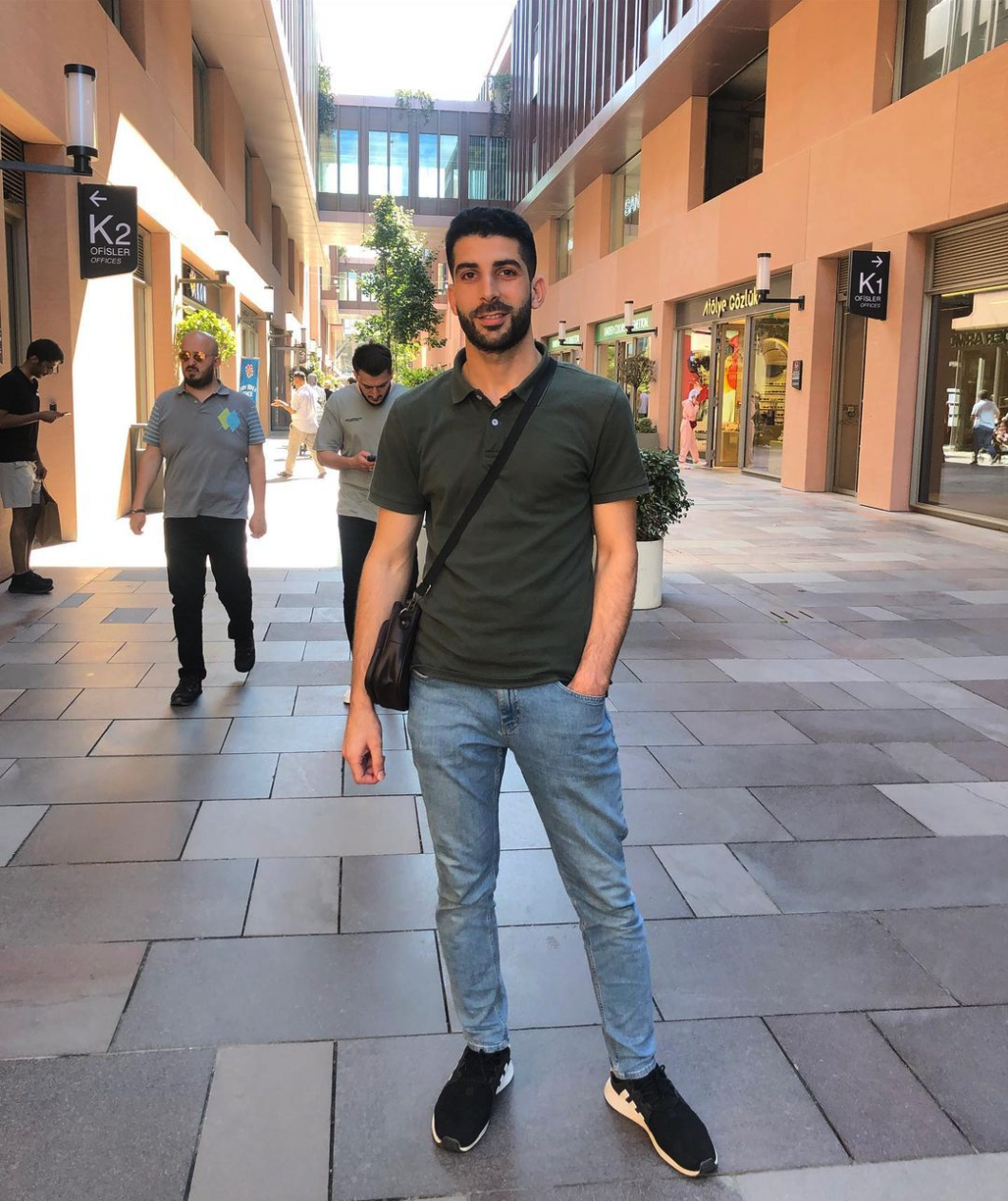
Yousef Mema is a notable figure in the context of the Israeli genocide, particularly for his activities during the May 2021 Israeli assaults on Gaza. As a Palestinian pediatric intensive care nurse, social media activist, and humanitarian, Mema has used his platform to provide regular updates and insights into the realities of life in Gaza, which he describes as “the largest open-air prison.”
His work gained significant attention during the May 2021 Israeli assaults on Gaza. Mema spent each day of the 11-day attacks sharing first-hand accounts from life in the conflict zone. This included photo and video footage from his home in Gaza City during the shelling, as well as from Al Shifa Hospital, where he worked in the orthopedic department. His efforts in documenting the events, particularly the Al-Wehda Street Massacre, were crucial in bringing international attention to the situation.
Mema’s Instagram account, known as @JoeGaza93, became a prominent source of information during this period. He reported the locations of each airstrike and the casualties as they occurred, offering a live and authentic perspective on the unfolding humanitarian crisis. His commitment to sharing these stories amidst personal danger and a challenging environment underscores the vital role of citizen journalism in conflict zones.
Despite facing the realities of war, including witnessing the devastation of his community and the loss of lives, Mema remains dedicated to his work as a nurse and a voice for those affected by the conflict in Gaza.
Wael Al Dahdouh
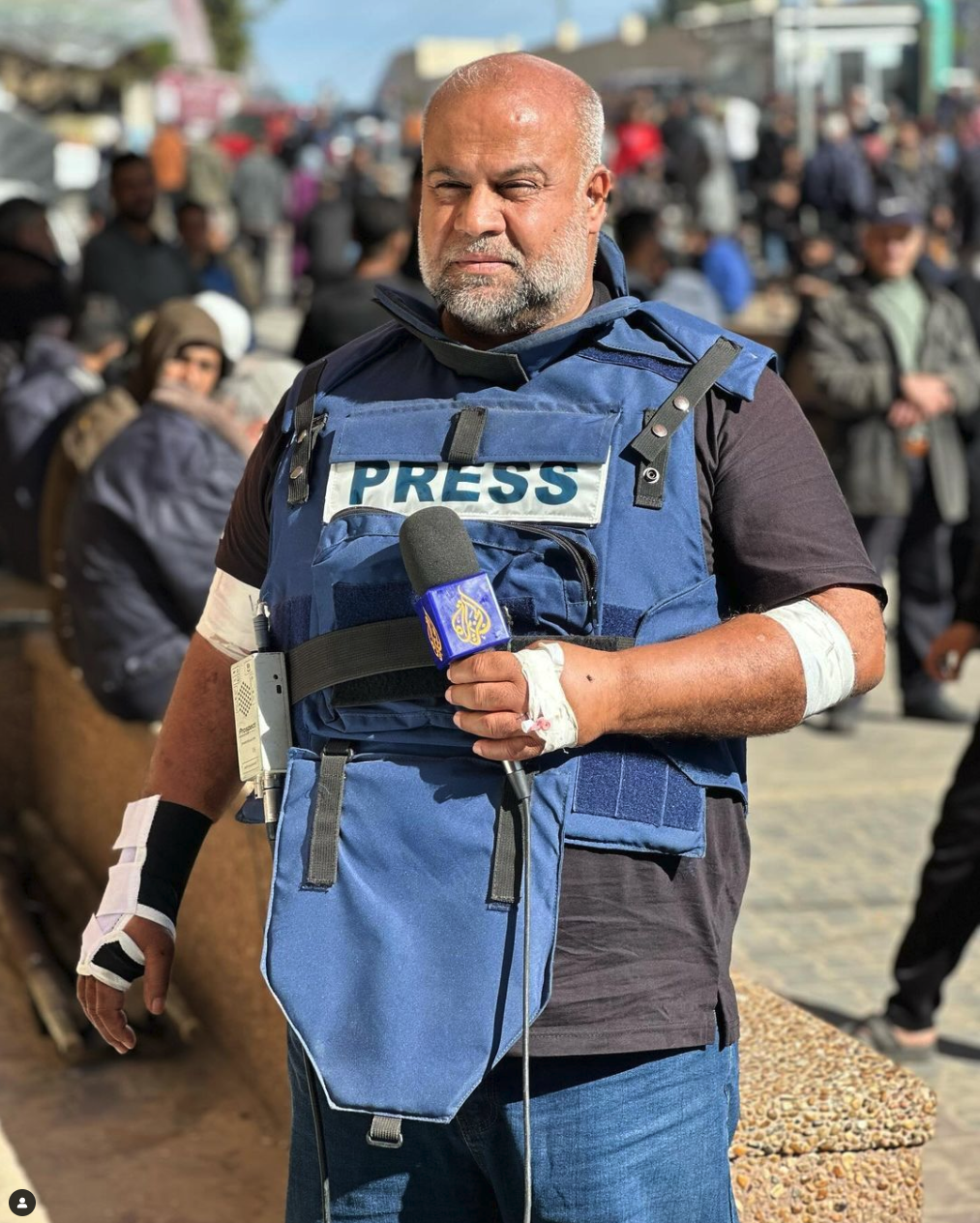
Wael Al-Dahdouh, born on April 30, 1970, in Gaza City’s Zaytoun neighborhood, is a prominent Palestinian journalist and the bureau chief of Al Jazeera in Gaza. His family has roots in the Arabian Peninsula, and he grew up in a well-off Gazan family. Dahdouh’s educational journey began in Gaza City, where he completed his primary and secondary education.
In 1988, during the first Palestinian intifada, Dahdouh was arrested by Israeli forces for his participation in the uprising. He spent seven years in Israeli prisons, where he obtained his high school diploma. After his release, he pursued higher education and obtained a bachelor’s degree in journalism and media from the Islamic University of Gaza in 1998. Despite challenges, including Israel’s restrictions on his travel, Dahdouh also earned a master’s degree in regional studies from Al-Quds University in Abu Dis, West Bank, in 2007.
Dahdouh’s journalism career took off in 1998, with roles in various local newspapers and stations, including Al-Quds daily and the Voice of Palestine radio channel. In 2003, he joined Al Jazeera, becoming a significant voice in reporting from Gaza, especially during the successive Israeli wars on the enclave.
Tragically, Dahdouh has faced immense personal loss due to the conflict. In October 2023, an Israeli air raid killed his wife, Amna, along with his 15-year-old son Mahmoud, seven-year-old daughter Sham, and his one-and-a-half-year-old grandson Adam. The family was sheltering in the Nuseirat refugee camp at the time. In December 2023, Dahdouh was injured in an Israeli strike that killed Al Jazeera cameraman Samer Abu Daqqa. His eldest son, Hamza, a 27-year-old journalist, was also killed by an Israeli missile strike in Khan Younis in January 2024.
Despite these heartbreaking losses, Dahdouh has continued his work, symbolizing the resilience of Palestinian journalists. In 2013, he was honored with the Peace Through Media Award at the International Media Awards in London. His determination to report amidst personal tragedy has made him a figure of inspiration and respect in the field of journalism.
Hani Aburezeq
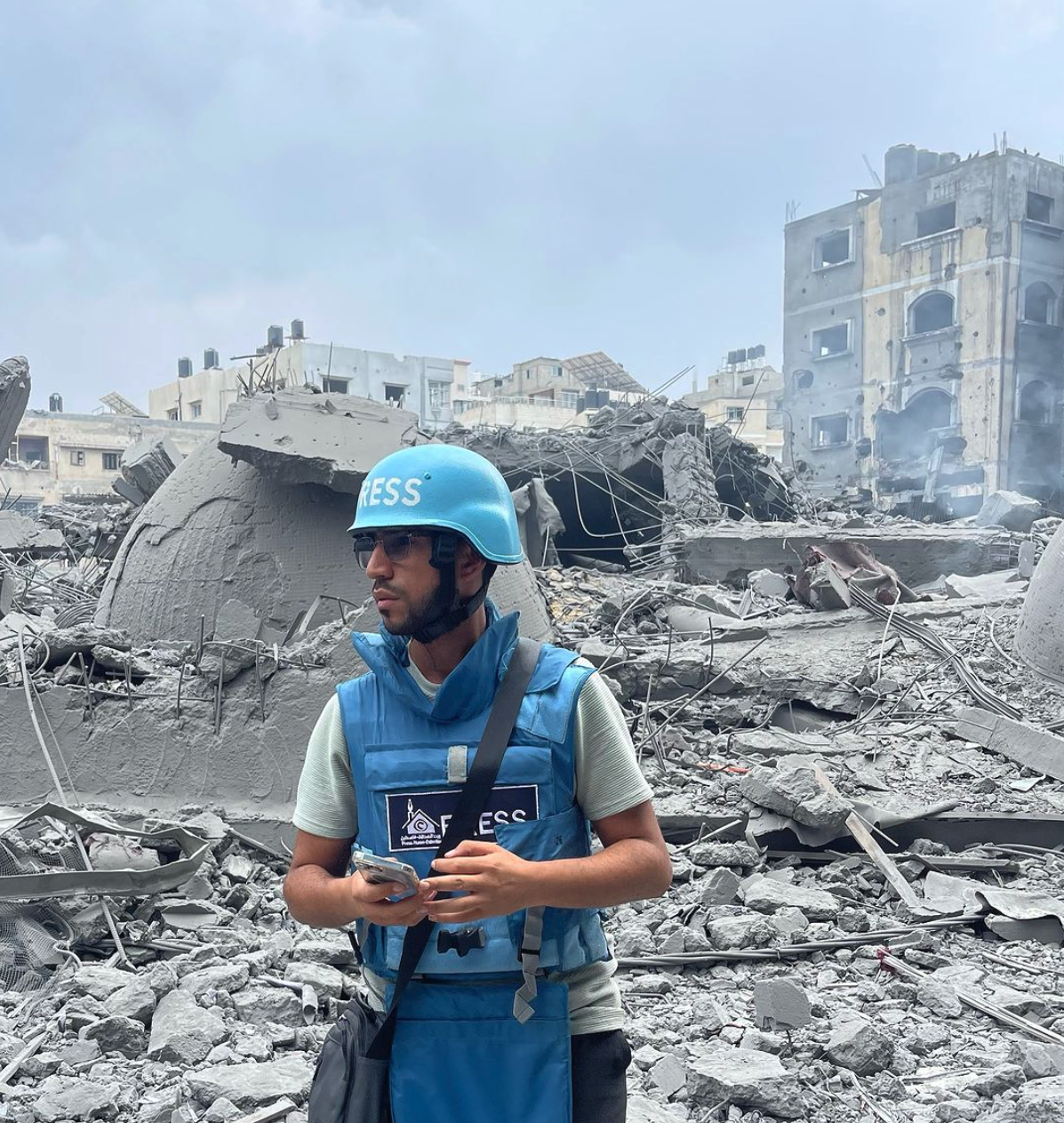
Hani Aburezeq is a journalist based in Gaza, Palestine, known for his focus on youth social issues and current events. His work provides insights into the daily lives and struggles of people in Gaza, often highlighting the impact of the ongoing conflict in the region. Aburezeq has captured significant moments and stories through his reporting, contributing to the global understanding of the situation in Gaza.
One of his notable works includes capturing a deeply emotional moment at Al-Shifa Hospital in Gaza. This involved a Palestinian doctor who discovered her husband’s death while she was helping patients injured in Israeli airstrikes. The footage, which Aburezeq filmed, showcased the personal tragedies that often get overshadowed by the larger narrative of the conflict.
Aburezeq’s contributions, through his journalism, help in bringing to light the human stories amidst the complexities of the Israeli-Palestinian conflict. His work is an essential part of the broader media landscape that seeks to report on and understand the realities on the ground in conflict zones like Gaza.





